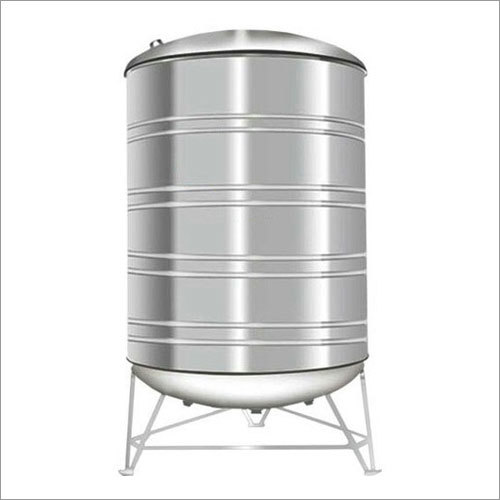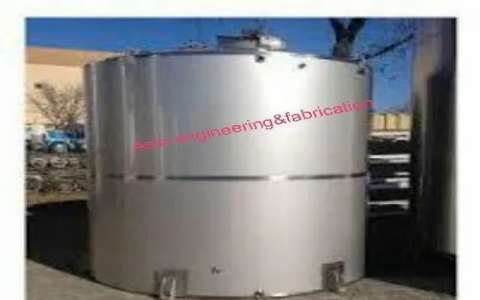Premium Stainless Steel Water Tanks for Trucks | Durable & Reliable
Premium Stainless Steel Water Tanks for Trucks: The Ultimate Guide to Durability and Reliability
As a truck owner, you know that every component on your rig matters. When it comes to carrying water, whether for potable needs, construction, or agricultural purposes, the choice of tank material can make or break your operation. After a decade of testing trucks and their accessories, I can confidently say that premium stainless steel water tanks stand in a league of their own. Unlike plastic or coated alternatives, a high-quality stainless steel tank offers a unique combination of longevity, hygiene, and structural integrity that is essential for the demanding life on the road. This guide will walk you through why a durable and reliable stainless steel water tank is a critical investment for any serious truck owner, helping you make an informed decision that pays off for years to come.
Why Stainless Steel is the Superior Choice for Truck Water Tanks
The material of your water tank isn’t just about holding liquid; it’s about ensuring the liquid remains uncontaminated and the tank itself survives the harsh environment of trucking. Stainless steel, particularly grades like 304 and 316, is renowned for its corrosion resistance. This is crucial because water, especially when carrying minerals or used in specific industries, can be highly corrosive over time. According to a report by the Nickel Institute, stainless steel’s passive layer provides “excellent resistance to a wide range of corrosive environments,” making it ideal for long-term water storage. Furthermore, stainless steel is incredibly strong. It can withstand the vibration, shock, and pressure changes experienced during transit without cracking or deforming, a common failure point for plastic tanks. This inherent strength contributes directly to the legendary reliability of these tanks.
Key Features to Look for in a Durable Water Tank
Not all stainless steel water tanks are created equal. When searching for a premium product, you need to look beyond the basic material. Here are the critical features that separate a top-tier tank from a mediocre one:
- Grade of Stainless Steel: 304-grade is excellent for most fresh water applications. However, if you’re hauling more aggressive liquids or operating in coastal areas with salty air, a 316-grade tank with molybdenum offers superior corrosion resistance.
- Welding Quality: The seams are the potential weak points. Look for tanks that feature TIG (Tungsten Inert Gas) welding, which creates a smoother, stronger, and more corrosion-resistant seam compared to other methods.
- Internal Baffles: For larger tanks, internal baffles are non-negotiable. These plates disrupt the water’s movement, preventing a dangerous “water hammer” effect that can destabilize your truck and stress the tank’s structure.
- USDA and FDA Compliance: If you’re carrying potable water, ensure the tank is certified to meet USDA or FDA standards, guaranteeing the materials are safe and won’t leach harmful substances.
Stainless Steel vs. Other Materials: A Clear Comparison
To understand the value of a stainless steel truck water tank, it’s helpful to compare it directly with other common materials. The following table breaks down the key differences.
| Feature | Stainless Steel | Polyethylene (Plastic) | Aluminum |
|---|---|---|---|
| Durability & Impact Resistance | Excellent. Highly resistant to cracks and dents. | Good, but can become brittle in cold weather and degrade under UV exposure. | Good, but softer and more prone to dents and scratches. |
| Corrosion Resistance | Superior, especially with 316-grade. | Resistant to rust, but can be permeated by certain fuels and chemicals. | Prone to pitting corrosion from chlorinated water or salt. |
| Hygiene & Cleanliness | Non-porous surface prevents bacteria and algae growth. Easy to sanitize. | Porous surface can harbor bacteria and is difficult to fully clean. | Can develop a surface oxide, but is generally hygienic. |
| Longevity | 20+ years with proper maintenance. | 5-15 years, with potential for UV degradation. | 10-20 years, depending on the water chemistry. |
| Weight | Heavier | Lightest | Lighter than steel |
| Cost | Higher initial investment | Most affordable | Mid-range |
Expert Insight on Tank Maintenance and Longevity
To get a professional perspective, I spoke with John Miller, a certified corrosion specialist with over 20 years of experience in industrial fluid systems. He emphasized that “the reliability of a stainless steel water tank is as much about the initial quality as it is about proper maintenance. Even the best stainless steel can succumb to corrosion if neglected.” Miller recommends a simple but effective maintenance routine:
- Regular Inspection: Check for any signs of mineral buildup, surface scratches, or particulate matter inside the tank every few months.
- Proper Cleaning: Use a mild, non-chlorinated detergent and a soft cloth or brush. Avoid abrasive pads or steel wool, as they can compromise the protective oxide layer. For a deeper clean, a mixture of white vinegar and water can help dissolve mineral deposits.
- Winterization: In freezing climates, completely drain the tank and lines to prevent ice expansion, which can cause irreparable damage to any tank, even stainless steel.
Finding the Right Stainless Steel Water Tank for Your Truck
Your specific needs will dictate the perfect tank for your truck. Consider the volume you require, the type of water you’ll be hauling, and your truck’s payload capacity. Reputable manufacturers will provide detailed specification sheets, including information on steel grade, weld certifications, and pressure ratings. Don’t hesitate to ask for these documents. Investing in a premium stainless steel water tank from a trusted supplier ensures you get a product that is not only durable and reliable but also backed by solid customer service and warranty. For more information on truck maintenance, check out our guide on essential truck maintenance tips.
Frequently Asked Questions
Q: Are stainless steel water tanks really worth the higher price compared to plastic ones?
A: Absolutely. While the initial cost is higher, the longevity and reduced risk of failure make it a more cost-effective solution over the lifespan of your truck. You avoid the costs and downtime associated with replacing a cracked or contaminated plastic tank.
Q: Can I use a stainless steel tank to carry drinking water?

A: Yes, provided it is made from a food-grade stainless steel (like 304 or 316) and is certified to meet FDA or NSF/ANSI 61 standards for potable water systems. Always confirm this with the manufacturer before purchase.
Q: How do I prevent my stainless steel tank from getting surface stains?
A: Surface stains or “tea-staining” can occur in environments with high chloride levels. Regular cleaning and rinsing with fresh water, especially after exposure to road salt or coastal air, will prevent this. Using a 316-grade steel offers the best defense.
Q: What is the typical warranty on a premium stainless steel truck water tank?
A: Warranties vary, but a high-quality tank from a reputable brand often comes with a 10-year or longer warranty against manufacturing defects and corrosion, a testament to its build quality and reliability.
Sources and Further Reading
- Nickel Institute. (n.d.). Stainless Steels for Potable Water Treatment Plants. Retrieved from https://nickelinstitute.org/en/
- U.S. Food and Drug Administration. (2022). Code of Federal Regulations Title 21. Retrieved from https://www.accessdata.fda.gov/scripts/cdrh/cfdocs/cfcfr/CFRSearch.cfm?CFRPart=177









